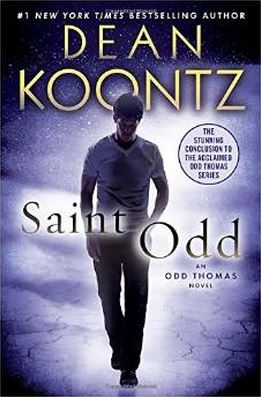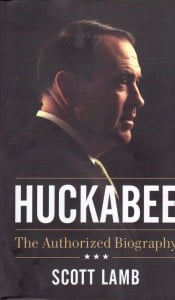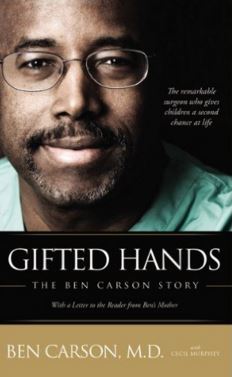 I’m a pretty practical reader. I read solid theological tomes or historical fiction or self-help books–not sci-fi. I’m not one to be hooked on fantasy tales and spirits of the walking dead.
I’m a pretty practical reader. I read solid theological tomes or historical fiction or self-help books–not sci-fi. I’m not one to be hooked on fantasy tales and spirits of the walking dead.
So how in the world did I fall in love with a character who sees dead people, and whose path is crossed by shadowy purply-black death-chasers called “bodachs” who somehow show up every time there’s an impending cataclysm?
I don’t know–but I’ll tell you this: I didn’t want to see Odd Thomas die.
On a conscious level, I know that Dean Koontz cooked up the 20-year-old fry cook from Pico Mundo in his imagination. I know Odd’s not real, he didn’t really die, he felt no pain. I know that his lost love, Stormy Llewellyn, didn’t really die in a burst of gunfire in the Green Moon Mall.
But I am grieving. It hurts to say goodbye.
After digesting the seven books in the series which bears his name, I’ve learned to trust Odd Thomas to inject humor into tragedy, to smother political correctness with a dollop of wisdom, to expose the mental gymnastics that insist that wrong is right. Odd nudges the reader to turn an eye toward the inevitability of death and the soul’s emergence into eternity, with all of its implications.
Koontz is a secular writer, yet the pages of an Odd Thomas book are infused with Christian morality. Through page-turning narrative, Koontz schools his readers in bioethics and on the value of friendship, and spurs even nonbelievers toward the reluctant admission of objective truth. An atheist can’t be too careful reading Koontz; eventually, he’ll concede cause-and-effect, seek the first Cause, and realize he’s been had.
Saint Odd, the stunning conclusion of the acclaimed Odd Thomas series, is perhaps Koontz’ greatest masterpiece to date. It combines breathtaking suspense with deadpan humor, adventure with irony. As I read, I had planned to mark passages I especially liked; but I’d have underlined the book, so I quickly abandoned the task. Here, at random, a paragraph near the end, after I’d been gripped by the danger and the pathos of Odd’s brief life:
“A cold, controlled fury had gripped me, greater than any anger I had experienced before. I felt as if there were two Odds in the same skin–the fry cook who had written poetry for the girl he loved and wept at movies like “Terms of Endearment,” but also the ruthless killer who could shoot men in the back. The darker Odd Thomas thought his violence must be righteous, in the service of good, for the protection of the innocent. But the other Odd wondered if the claim of righteous purpose, exerted so often in these past two years, was always true–or if it might be overused. There were nights when consideration of that issue would not allow sleep. In spite of all the doubt, my fury didn’t abate.”
And Odd is always ready to put things in perspective. He says this:
“When I was no longer of the world, I would miss its extravagant beauty. I would miss the complex and charming layers of subterfuge by which the truth of the world’s mysteries were withheld from us even as we were tantalized and enchanted by them. I would miss the kindness of good people who were compassionate when so many were pitiless, who made their way through so much corruption without being corrupted themselves, who eschewed envy in a world of envy, who eschewed greed in a world of greed, who valued truth and could not be drowned in a sea of lies, for they shone, and by the light they cast, they had warmed me all my life.
I would not miss the indifference in the face of suffering, the hatred, the violence, the cruelty, the lust for power that so many people brought to the pageant of humanity.”
Odd Thomas–more than the older, gruffer characters who populate the pages of Koontz’ novels, and who befriend him and offer helps like a flashlight and a light blue sport coat–has a natural affinity for pithy sayings of great import. Odd explains to the reader:
“In this world, Evil works through countless surrogates. Its name is Legion. But Good works through surrogates, as well, and they are legion, too.”
But in sharing Odd’s deep ponderings, I’ve left out the suspense, the live action, the fear which permeate the story. That’s because you have to read it for yourself.
I’m telling you about Saint Odd, the newest and the last of the series. If you’re an Odd Thomas fan, you’ll want to pick it up. If you’ve never been introduced to the slim young man from the California desert town of Pico Mundo, don’t start here: Go back, read the first Odd Thomas book, and work your way through the series, page by suspenseful page.
Read the books in this order: Odd Thomas; Forever Odd; Brother Odd; Odd Hours; Odd Interlude; Odd Apocalypse; Deeply Odd; and finally, Saint Odd.
You’ll thank me for this tip.











